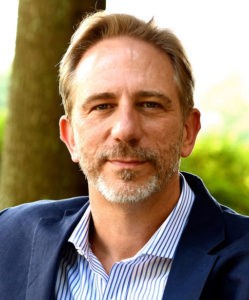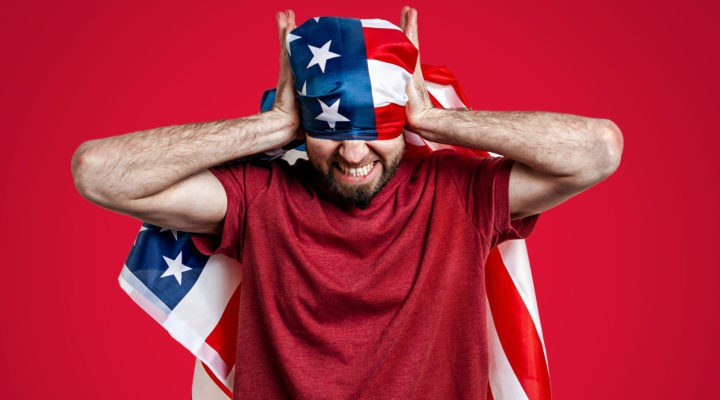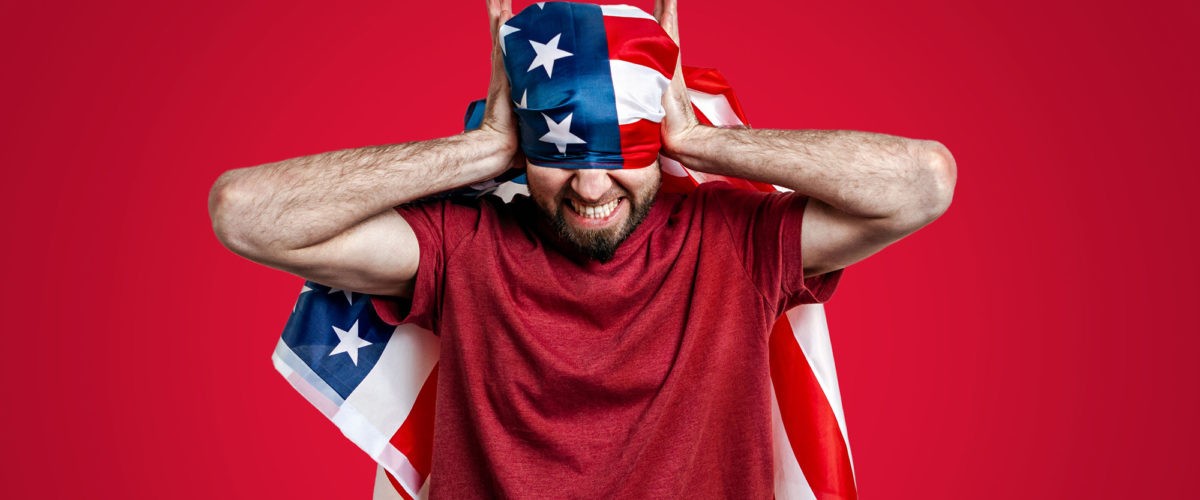The hysteria over Critical Race Theory right now means many things.
Most immediately, it means that the relationship between skilled right-wing demagogues and their audience in the U.S. these days is positively Pavlovian. Stimulus-response, stimulus-response, rinse and repeat.
If Tucker Carlson says over several nights on Fox News that Critical Race Theory is a huge threat to America, it won’t be long before crowds will be in the streets protesting, Republican legislators will be banning the heresy from being taught even in universities, and previously sleepy school board meetings will be broken up by hysterical white parents.

David Gushee
It must be kind of fun exercising that kind of power over people. It is certainly profitable for those who have that power. (See Trump, Donald J.)
The deeper meaning of the manufactured Critical Race Theory furor is that there appears to be a massive audience in the U.S. for anything that triggers what is variously called “white rage,” “white fragility” and “white hysteria.” A significant portion of the U.S. white population simply cannot face the vicious history and ongoing reality of white racism in this country.
I hasten to add that the vast majority of the white population in the U.S. historically has identified as Christian, and any kind of close study of our nation’s history reveals the complex intertwining of white Christianity and white racism.
Thus, the real problem is best labeled as “white Christian racism.” If one wants to be a bit more precise (and provocative), the better term is “white Christian supremacism” — the idea that white Christian people are the spiritually, intellectually, morally and racially superior population and therefore the rightful rulers of this land.
The idea was expressed pungently by as respectable a figure as President Franklin Roosevelt when he told two of his Cabinet members — a Catholic and a Jew — “This is a white Anglo-Saxon Protestant nation and everyone else is here by sufferance.”
“This was not merely a Southern problem, an evangelical problem, a Baptist problem. It was white people’s problem.”
Historically, such white (once Protestant) Christian supremacism suffused the nation, with exceptions notable for being so exceptional. This was not merely a Southern problem, an evangelical problem, a Baptist problem. It was white people’s problem. Now, parts of one of our two political parties, along with many of our cultural and intellectual leaders, have decided to (begin to) repudiate the doctrine and practice of white Christian supremacism, and much of the rest of the white population is losing its mind over this — to them — devastating development.
There are many ways to analyze why the hysteria is so intense. I always will find the structural analysis highly cogent — as far back as Frederick Douglass — smart observers recognized that privileged groups never give up their power voluntarily, they will fight it tooth and nail. So, yes, at one level this is a matter of feared, and real, loss of power, with white people scrapping not to lose one inch of their (our) dominance and privilege.
It was when I began making a close study of classic fictional works by Black authors that I realized a different dimension of the problem. From 2017 forward, I have read novels and short stories by Zora Neale Hurston, Octavia Butler, W.E.B. DuBois, Langston Hughes, Toni Morrison, James Baldwin, Alice Walker, Ernest Gaines, Dorothy West and others, attending closely to what these novels say about white Christian people.
While the novels are mainly about Black experience, the matter-of-fact way in which the characters describe the degradation of the individual and collective white soul shot through with racism was at first shocking to my own all-too-oblivious white soul.
I summarize the overall picture offered by these novels as describing white people’s moral debasement, religious impotence and perceptual blindness. The novels show the way racism has damaged white people at our moral core, the way our versions of Christianity have proved powerless to stop the damage, and the head-smacking obliviousness of white people to the wrongdoing in which we are immersed.
Critical Race Theory is a relatively new analytical approach to describing the reality of systemic racism. But Black observers (and some honest white ones) have been describing the systemic evil of white American (and European) racism in bracing ways for hundreds of years. I have found pungent quotes describing the damage to white people caused by racism from the 15th century and in every century since.
“We wish to retain not just our supremacy but our innocence. It is the challenging of our innocence that so outrages us.”
My hypothesis is that it is not just the fear of lost power that causes today’s white hysteria, which is currently targeted, absurdly enough, at an arcane intellectual theory. It is, instead, what happens when people who have been lying to themselves for hundreds of years are challenged. We wish to retain not just our supremacy but our innocence. It is the challenging of our innocence that so outrages us.
James Baldwin saw it in 1963. This is from The Fire Next Time: “It is not permissible that the authors of devastation should also be innocent. It is the innocence which constitutes the crime.”
Ta-Nehisi Coates saw it in 2015. This is from Between the World and Me: “The mettle that it takes to look away from the horror of our prison system, from police forces transformed into armies, from the long war against the Black body, is not forged overnight. This is the practiced habit of jabbing out one’s eyes and forgetting the work of one’s hands.”
The next time you see angry white mobs storming school board meetings, and legislators banning the teaching of Critical Race Theory, just picture people jabbing their own eyes out so they can feel better about what they have made themselves unable to see.
David P. Gushee is a leading Christian ethicist. He serves as Distinguished University Professor of Christian Ethics at Mercer University and is the past president of both The American Academy of Religion and The Society of Christian Ethics. He’s the author of Kingdom Ethics, After Evangelicalism, and Changing Our Mind: The Landmark Call for Inclusion of LGBTQ Christians. He and his wife, Jeanie, live in Atlanta. Learn more: davidpgushee.com or Facebook.
Related articles:
What the Critical Race Theory debate has to do with Professor Harold Hill | Opinion by Mark Wingfield
Want to understand Critical Race Theory? Read the Good Samaritan story | Opinion by Susan Shaw and Regina McClinton
It’s not just the SBC banning Critical Race Theory; now state legislatures are joining the fight
Could you win a quiz show by defining ‘Critical Race Theory’? | Analysis by Mark Wingfield


